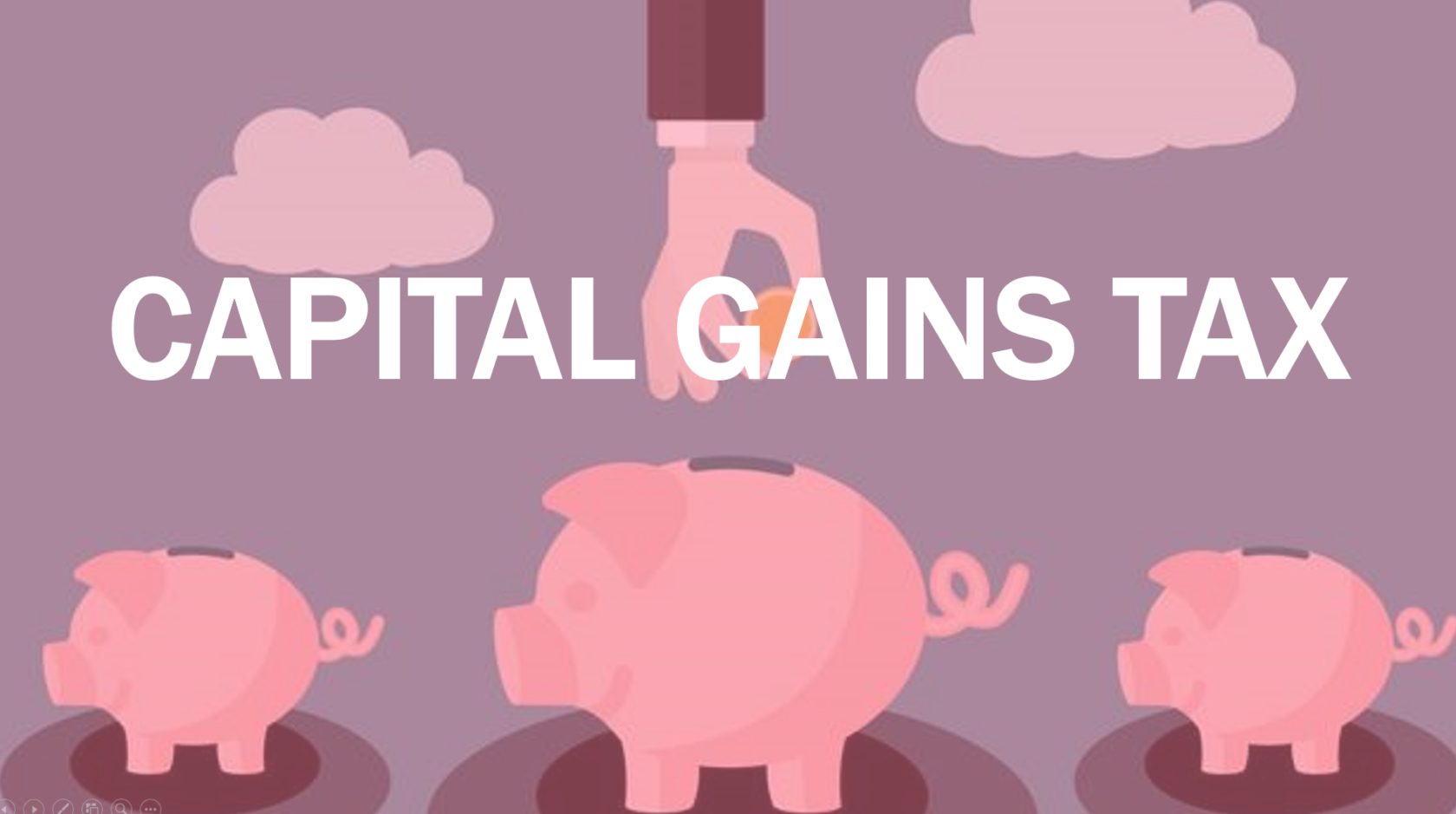Capital Gains Tax – A whistle-stop Tour

Updated 2nd December 2020.
By Richard Marshall; Associate Director – Tax
Capital Gains Tax (commonly referred to as CGT) is a tax payable on the profit you make when disposing of an asset.
Let’s say you buy 1,000 shares and when you buy them they’re worth €1 each, so you spend €1,000 on them.
A few years later you sell them for €10 each, so the proceeds from the sale is €10,000.
The difference between the price you bought them at (€1,000) and the price you sold them for (€10,000) is €9,000 – and this is your gain.
The Government would like you to pay tax on this gain and that’s called Capital Gains Tax.
So what assets attract Capital Gains Tax?
The more popular ones are shares, property (but typically not the residence you normally live in) and land. Now, the tricky thing with Capital Gains Tax, is it doesn’t just apply to assets you sell. If you dispose of an asset, then you may also have to pay Capital Gains Tax.
Disposing means selling, giving away, transferring to another person or gifting.
But all is not lost, because there are some exemptions;
First let’s look at the type of assets that aren’t affected by Capital Gains Tax.
Lottery wins, betting, animals, government stocks, and personal motor cars.
You’re also exempt from CGT on moveable objects – things like furniture, jewellery and paintings. However, if the person taking ownership of these might reasonably consider them to be an investment – for example, a painting by Picasso, then CGT would most likely apply.
There are also exemptions for certain people.
Transfers of assets between spouses or civil partners are typically exempt. This includes those who are separated, divorced or former civil partners. However, in a couple of occasions the relief doesn’t apply so you’re better to give us a call first to check with us.
Everyone gets an annual exemption of €1,270. This means you pay no tax on the first €1,270 of capital gains made in a year.
Now to look at the tax itself…
The first thing to know is that with Capital Gains Tax you have to pay the tax before you file your tax return.
If you dispose of an asset between January and November this year, then the tax must be paid by the 15th of December.
The tax due on any assets disposed of in December will need to be paid by 31 January.
When do I file a Tax Return for CGT
Although you pay CGT in the year you make the gain (or January of the following year if the gain was made in December) the actual Tax Return doesn’t need to be filed with the Revenue Commissioners until the following October, and it is at this point that you declare the specific details of the transaction. If you are self-employed, the CGT details can be included on your Income Tax return. Alternatively you would complete a Capital Gains Return (Form CG1). If you’re any bit confused, give us a call and we can help sort your tax return.
What about Capital losses?
Before I finish up I’ll quickly mention about losses. If you dispose of an asset for less than you originally paid for it, then you have a capital loss. Unfortunately following the economic crash in 2008, there are many people who made a loss on investment property, land and shares.
Any loss you make stays with you for your lifetime and it can be used against any capital gains you make at any time in the future.
So, if you have losses, it’s important to register these too, so there’s a record of them.
If you’re still unsure whether or not you need to declare a profit, or loss on the disposal of assets this year, get in touch with one of our tax specialists today on 1800 54 54 22.
Contracting PLUS – Making Capital Gains Tax, Simple
